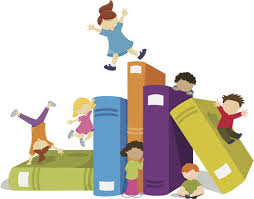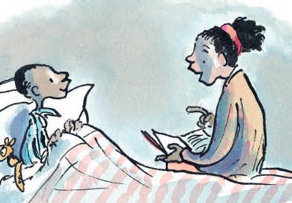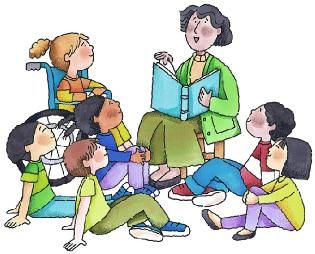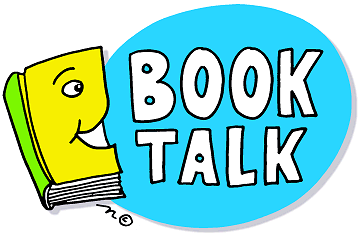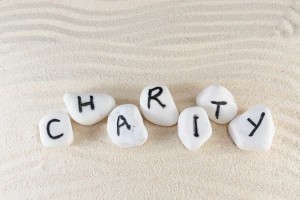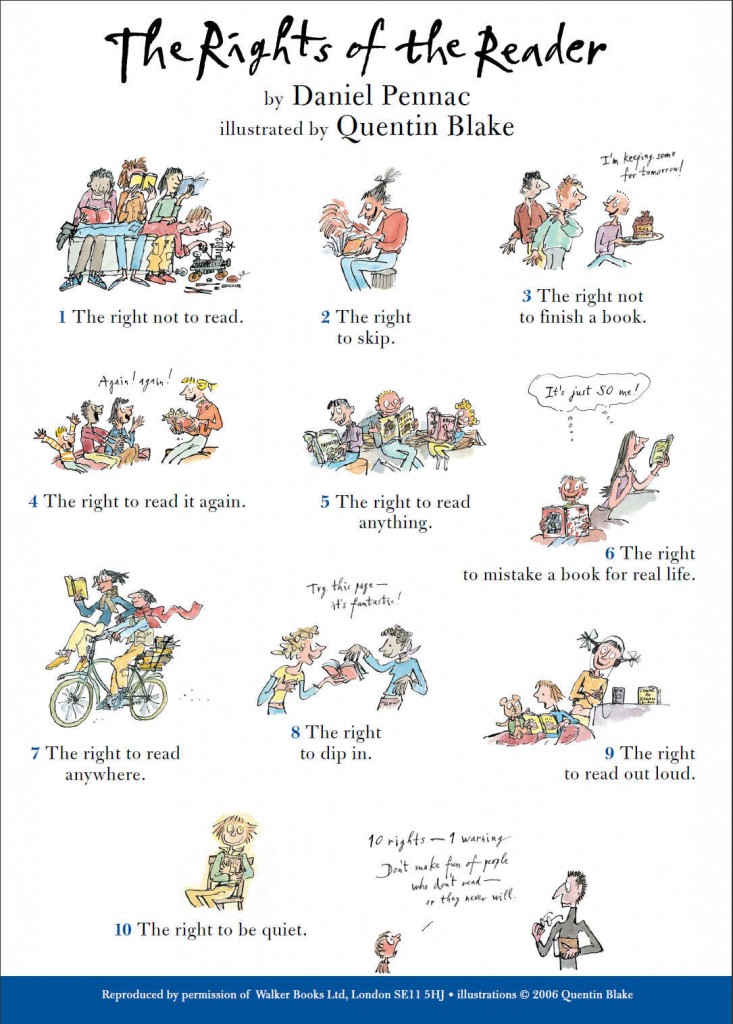As a kid I read a lot and as an adult I still read a lot. No one had to tell me reading was fun. But I think I missed out so many different things that could have enhanced my reading.
Couple of years ago, I started doing school visits, told stories to children and of course met some creative, craft-loving, singing-dancing mums and aunts and grandparents who inspired me to make reading absolutely more fun than anything else.
So here are some ideas on how to make books, stories and reading the centre of your universe.
Idea #1 – Read together. Read with voices, read with noises. Sing songs, dance to the verse and celebrate the words. Reading together doesn’t have to be aloud all the time. It could be as cosy as each person in the family from grandmother to toddler picking a place on the sofa or on the floor or under the dining table (as I used to) and read at the same time. Adults can’t just say reading is fun. Show the kids that reading is fun.
Here are some tips and great examples of reading aloud.
http://www.booktrust.org.uk/books/children/how-to-share-books/top-tips-on-sharing-books/
Idea #2 – Don’t judge the reading choice. I used to read newspapers, the Reader’s Digest, English textbooks of older kids with stories in them, comic books and magazines – both children’s and family magazines. Don’t force your children or yourself just to read motivational books, non-fiction, school assessment books or what’s useful for school.
Let them decide what they like. Some kids like non-fiction and some like stories. Some like comics only. All reading is good reading. Perhaps your kid plays cricket, find some books on the sport, find histories and biographies on the internet and print them out for them. Ask them to make a book about the sport.
 Don’t frown upon their choices in bookstores and libraries. Don’t check the price of storybooks and compare it to an encyclopedia. It’s like comparing the price of soap to the price of mangoes. Those two exist for two different reasons and we want them in different measures in our lives. No reading is wasted.
Don’t frown upon their choices in bookstores and libraries. Don’t check the price of storybooks and compare it to an encyclopedia. It’s like comparing the price of soap to the price of mangoes. Those two exist for two different reasons and we want them in different measures in our lives. No reading is wasted.
Stories are blueprints for life. Fiction allows children to read about someone else who has a similar problem or a different problem they have never seen before. When the character in the story has the same problem as the reader, the story equips the child to question their situation, shows them how to approach it or how not to. When the character in the story has a different problem than the child, it teaches empathy.
Here is a study by the UK government which emphasizes that reading for pleasure has far-reaching benefits.
https://www.gov.uk/government/uploads/system/uploads/attachment_data/file/284286/reading_for_pleasure.pdf
Idea #3 – If your child is excited about a book, find songs to go with the book. Whether they are Bollywood tunes or nursery rhymes or pop music – ask them to explore. My storytelling coach used to encourage us to find songs for every story we want to tell. It’s a great way to celebrate the story and integrate it with other aspects of life.
Here is a list of books that have music as an integral part.
http://www.tarleton.edu/Faculty/boucher/Selected%20List%20of%20Childrens%20Books%20that%20Incorporate%20Music.pdf
Here is a list of songs that encourage reading.
http://www.songsforteaching.com/readingencouragement.htm
Idea #4 – If you read a book together, draw and paint scenes together. How about mosaic art? 

 How about a home exhibition of all paintings all of you have done that are connected to the books you read. Invite aunties and uncles, grandparents and neighbours and create an art gallery visit.
How about a home exhibition of all paintings all of you have done that are connected to the books you read. Invite aunties and uncles, grandparents and neighbours and create an art gallery visit.
Perhaps you can create a pininterest board of all your drawings and artwork too.
Idea #5 – Crafts. I was always bad at crafts. Correction – I’m still bad at doing crafts. But I still try and attempt. I’m never going to have an art installation in Trafalgar Square – but my family would still think I’m the next Tracy Emin. So, be brave. Try it out.
The Internet and YouTube are filled with arts and crafts activity about every imaginable topic. So when I wanted to create a craft activity for my Farmer Falgu books – I found an ice-cream stick bullock-cart craft video. How cool. One school watched the video and created tens of bullock-carts for World Book Day.

Here are some great videos of craft activities.
https://www.youtube.com/results?search_query=children+craft+activities+
Find a craft that matches the book. Be it a kite, a house, perhaps clay modeling of the animals, stickman if you are into Julia Donaldson. True for older kids and teenagers too.
Idea #6 – Movie nights – read great books that have been made into movies and follow it up with a movie night. Whether Bollywood or BBC Films, there is a treasure trove available. Some movies have been made more than once. Imagine the discussion at the dinner table – children would know if the movie justified the book or was better or was nowhere near it. Talk about if the character they had imagined matched the actor on screen.
Timeout has created a of fabulous movies that were adapted from children’s books.
http://www.timeout.com/new-york-kids/movies/best-kid-movies-adapted-from-childrens-books
And this is an exhaustive list of all movies made from children’s books.
https://en.wikipedia.org/wiki/List_of_children’s_books_made_into_feature_films
Idea #7 – Connect current affairs and history to the books you’re reading. If you read Enid Blyton and Tintin now, it would be a bit dated around some things. Some things that people said and did 50 years ago might not be polite now. Bring it up – talk about it.
Check out some hot topics and related books here. http://www.thechildrensbookreview.com/topic/books-by-subject/current-affairs
Ask the children if they see today things that happen that might not be polite in the future. Children are wise in an innocent way. They would want a better world if you asked them about it and of course they are the ones who could make it happen. So create leaders of your brood. Show them how to make their own way.
That actually wants me to talk about science fiction – what was science fiction in the 1920s – read them now and see if some of it has become a reality. Similarly read today’s science fiction and think about what’s the probability of these new ideas becoming a reality.
Here is a list of inventions inspired by science fiction.
http://www.smithsonianmag.com/ist/?next=/science-nature/ten-inventions-inspired-by-science-fiction-128080674/
Here is another less serious list.
http://www.theguardian.com/science/2014/oct/21/the-future-has-arrived-the-sci-si-inventions-that-have-become-reality
Now, historical fiction is a different type of fun. Imagine the stories set during historical times. What an opportunity to get grandparents involved in conversations about when they were young people and the stories they saw and how they relate to the books you’re reading.
I found this amazing list – but I would love to get suggestions on books set in India’s past, for children.
http://www.bookworm4kids.com/Historical_Fiction.html
What about the cultural scene when grandparents were kids? How does that measure up now?
Idea #8 – Animation adventures can be borne out of reading fun picture books or even chapter books. How about introducing your children to free tools to animate. They can draw and create animations – whether they write a script for their own book or a book they read or animate a book review – what a wonderful way to learn animation.
Here are some lists of animation ideas and resources.
http://domain.me/best-free-animation-software-for-children/
http://www.teachingideas.co.uk/ict/animationideas.htm
Are you hooked too? Then here are some grownup tools.
https://www.graphite.org/blog/16-websites-and-apps-for-making-videos-and-animation
Idea #9 – Blog about the books you read. There are great websites which request children to review books. Of course there are various competitions every year for which long-lists and shortlists are announced. Encourage your children to shadow the awards, review books they read, recommend books to their friends.
Here are some tips to start a book blog.
http://www.booktrust.org.uk/books/teenagers/writing-tips/tips-for-starting-a-book-blog/
http://www.theguardian.com/childrens-books-site/2014/dec/29/how-to-start-a-book-blog
Of course if you don’t want a blog of your own and want to contribute to a public blog, try this.
http://www.theguardian.com/books/childrens-books/2011/mar/02/how-do-i-get-involved-guardian-childrens-books
Idea #10 – Create a lending library manned by your little ones. Whether you invite neighbours and family to come and borrow or just for the immediate family – it is a great way to teach responsibility too. Children can arrange books, catalog them, review them, post recommendation notes and of course lend books out and chase out delayed returns.
Here is an idea of how to create a home library.
http://www.playingbythebook.net/2015/01/22/7-ways-to-set-up-and-run-a-childrens-book-group/
Idea #11 – Take a book like Diary of the Wimpy Kid – and ask your children to create a diary of their lives in the same design. How cool would that be? All they need is a blank notebook or a diary with lots of space to draw and write.
Perhaps they can develop an infographic about the book. Here are some free tools to create an infographic.
http://www.creativebloq.com/infographic/tools-2131971
I could go on and on and on. Try out all of them or some of them – make books and stories the centre of your family’s universe. Have fun. Come back and tell me which ideas worked and how it worked.


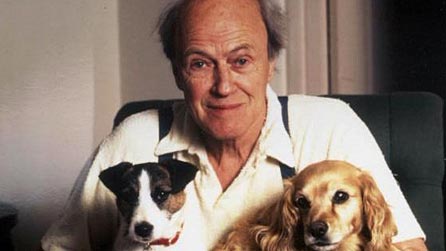
 I loved that book as a child. I think subtly it taught me about people could be both black and white – sometimes as a young person it is hard to assimilate what you see around you unless someone put it in a book.
I loved that book as a child. I think subtly it taught me about people could be both black and white – sometimes as a young person it is hard to assimilate what you see around you unless someone put it in a book.



 ities to other writers – but they are not YouTube stars or Hollywood Icons or recognizable BAFTA names or Heads of State or anything. They should be – we would have a better education policy.
ities to other writers – but they are not YouTube stars or Hollywood Icons or recognizable BAFTA names or Heads of State or anything. They should be – we would have a better education policy.

 Tanya Landman
Tanya Landman 


 I’m an introvert first and a social next. Yeah, yeah, you won’t know it when you see me. That’s me dressed up as an extrovert, like Dr. Jekyll and Mr. Hyde (Oops, sorry, Charlie Higson, I’ll talk about it later).
I’m an introvert first and a social next. Yeah, yeah, you won’t know it when you see me. That’s me dressed up as an extrovert, like Dr. Jekyll and Mr. Hyde (Oops, sorry, Charlie Higson, I’ll talk about it later). But I would be gate-crashing. But it is a launch. Anyone can go and buy a book. You don’t need to know Moira. Candy knows me – so she would introduce me. So the argument went on in my head the whole day – I went to the Facebook page and said Going. Then Not Going. Then Going again… I finally changed it to Going at 6 pm that evening, printed out directions from London Wall to Barbican – which is not very tricky at all. And I set out.
But I would be gate-crashing. But it is a launch. Anyone can go and buy a book. You don’t need to know Moira. Candy knows me – so she would introduce me. So the argument went on in my head the whole day – I went to the Facebook page and said Going. Then Not Going. Then Going again… I finally changed it to Going at 6 pm that evening, printed out directions from London Wall to Barbican – which is not very tricky at all. And I set out.

 Derek Landy – people who write scary stuff, horror and fantasy and all mixed up.
Derek Landy – people who write scary stuff, horror and fantasy and all mixed up. But it was fascinating to listen as a writer to the process, how they think about hunting down and killing characters. I know kids love it. For me this would be so similar to gaming but with all the imagination and levels in your head. That’s the best thing about books, isn’t it?
But it was fascinating to listen as a writer to the process, how they think about hunting down and killing characters. I know kids love it. For me this would be so similar to gaming but with all the imagination and levels in your head. That’s the best thing about books, isn’t it? d. And of course the big event – Judy Blume and Patrick Ness in conversation.
d. And of course the big event – Judy Blume and Patrick Ness in conversation. al seated in the front row where the official photographer wished he could be. We took some amazing pictures of the stage.
al seated in the front row where the official photographer wished he could be. We took some amazing pictures of the stage.
 s surprised. Oops! The official bookseller had not stocked his books because no one knew he was going to come. What a brilliant laureate and person he was. He drew individual pictures for each person who wanted to meet him. How lucky those folks were. I got a book signed – big mistake.
s surprised. Oops! The official bookseller had not stocked his books because no one knew he was going to come. What a brilliant laureate and person he was. He drew individual pictures for each person who wanted to meet him. How lucky those folks were. I got a book signed – big mistake. 
 So I didn’t get a drawing that could go on my wall. I should have asked for a picture too – but I chickened out. I did talk to him about Prague and its spires and its Gothic architecture and he told me he felt the same. Right behind me was Holly Smalle waiting and the pressure to leave Chris Riddell in celebrity hands was high
So I didn’t get a drawing that could go on my wall. I should have asked for a picture too – but I chickened out. I did talk to him about Prague and its spires and its Gothic architecture and he told me he felt the same. Right behind me was Holly Smalle waiting and the pressure to leave Chris Riddell in celebrity hands was high  – so I walked away holding my book close.
– so I walked away holding my book close. The Unlikely Event of my meeting with
The Unlikely Event of my meeting with  Don’t frown upon their choices in bookstores and libraries. Don’t check the price of storybooks and compare it to an encyclopedia. It’s like comparing the price of soap to the price of mangoes. Those two exist for two different reasons and we want them in different measures in our lives. No reading is wasted.
Don’t frown upon their choices in bookstores and libraries. Don’t check the price of storybooks and compare it to an encyclopedia. It’s like comparing the price of soap to the price of mangoes. Those two exist for two different reasons and we want them in different measures in our lives. No reading is wasted.

 How about a home exhibition of all paintings all of you have done that are connected to the books you read. Invite aunties and uncles, grandparents and neighbours and create an art gallery visit.
How about a home exhibition of all paintings all of you have done that are connected to the books you read. Invite aunties and uncles, grandparents and neighbours and create an art gallery visit.
